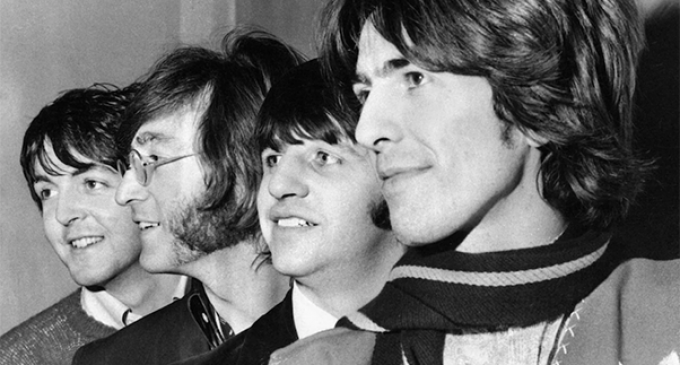‘George Harrison on George Harrison’ book review – The Washington Post

When Beatlemania exploded in 1963, George was dubbed “the quiet Beatle,” a moniker he neither endorsed nor repudiated. Even then, he had little regard for what the media thought of him. By the end of Kahn’s weighty book, Harrison still feels the same. Throughout the book’s 43 selections, his personality and character generally remain consistent and, as expected, when interviewed over many decades, he often repeats himself. But this shouldn’t deter the well-informed Harrison fan or the curious reader who’s simply searching for factoids that may come in handy on trivia night. The prime value of reading this book rests in one’s accumulating recognition that the world has lost a witty, articulate, candid and deeply spiritual human being.
Kahn’s mission is to offer the full man, beginning with select portions from early Beatles interviews, like the one with WWDC disc jockey Carroll James after their concert at the Washington Coliseum on Feb. 11, 1964. As a teenager, I recorded this interview and painstakingly transcribed it, worried that I couldn’t distinguish Harrison’s voice from John Lennon’s. This interview, and others Harrison did with his bandmates, show him in high comic form, offering quick put-downs, inside jokes and laughter. It’s invigorating to hear how unconcerned and forthright Harrison was in these early interviews. “The worst thing about America . . . is not the teenage fans but their parents.” “Performing in the Cow Palace [San Francisco, 1964] is like playing in the Mersey Tunnel.” Haight-Ashbury is like the Bowery.
After the Beatles disbanded in 1970, George continues to lambaste the music industry, casts some shade on Paul McCartney (“Paul’s really writing for a 14-year-old audience now”), and goes on at length about the power of meditation and Hindu philosophy. Of all the Beatles, Harrison hated touring the most and, post-Beatles, saw himself as just another musician playing with other musicians. In a 1975 interview, he expressed how he longed to be “invisible,” shocking words coming from a performer but not unexpected from a man whose religious practices taught him to value the inner light as opposed to publicity’s glare. Though the interviews concerning Harrison’s religious beliefs become repetitive, Kahn wisely includes them because the principles of Hinduism informed Harrison’s music, his public conduct, his eating habits, his concern for the environment and especially his attitude toward death.
Kahn writes a well-informed introduction to each selection, but a transcribed interview remains a disembodied format. Harrison’s speaking voice and accent, his gestures, laughter, and other telling body language are absent. Fortunately, there’s YouTube. One lovely, hilarious interview occurred in 1988 on Aspel & Company, a U.K. talk show. Harrison is interviewed first, and then, here’s Ringo. Both Beatles spar, laugh and reminisce in a joyful example of male camaraderie. This is what we would expect from Harrison.
However, seven months later, an interview with MTV News reveals the dark side of male camaraderie. George, along with Tom Petty and Jeff Lynne, three members of the group the Traveling Wilburys, are rude, dismissive and sexist toward their female interviewer. Harrison dominates this interview, and his snarkiness is evident on the page but more so in the video where his demeanor and voice are cold and calculating — the leader of the pack. “We were having great fun until you came in here with the interview,” he says, setting the tone of the encounter. This interview exposes a part of Harrison that his first wife, Pattie Boyd, describes in her memoir, “Wonderful Tonight: George Harrison, Eric Clapton, and Me.” Perhaps George’s behavior is for the benefit of Lynne and Petty, who, sitting on either side of him, say little while maintaining the attitude of surly rock-and-rollers. Considering how many words fill this book, it’s strange how few refer to women, love or sex. Kahn neglects to name the MTV interviewer, but all the others, male and female, are credited. I don’t know what, if anything, this exclusion may mean.
One admirable trait of Harrison’s in these interviews is his ability to condense complex subjects into verbal elegance, some elemental truth as he sees it: Early American rock-and-roll was “like the sound of hope.” Apple, the Beatles failed business venture, “is more or less just a company that employs lawyers.” “By having the money we found that money wasn’t the answer.” And my favorite: When asked what he missed most about John Lennon, George answered, “John Lennon.” I think we can answer the same about George Harrison, 1943-2001. RIP.
Sibbie O’Sullivan’s book of essays, “My Private Lennon: Explorations From a Fan Who Never Screamed” (Ohio State Press/Mad Creek Books), was recently chosen as one of the 100 best books published by university presses.
George Harrison on George Harrison
Interviews and Encounters
Edited by Ashley Kahn
Source: ‘George Harrison on George Harrison’ book review – The Washington Post




There are no comments at the moment, do you want to add one?
Write a comment